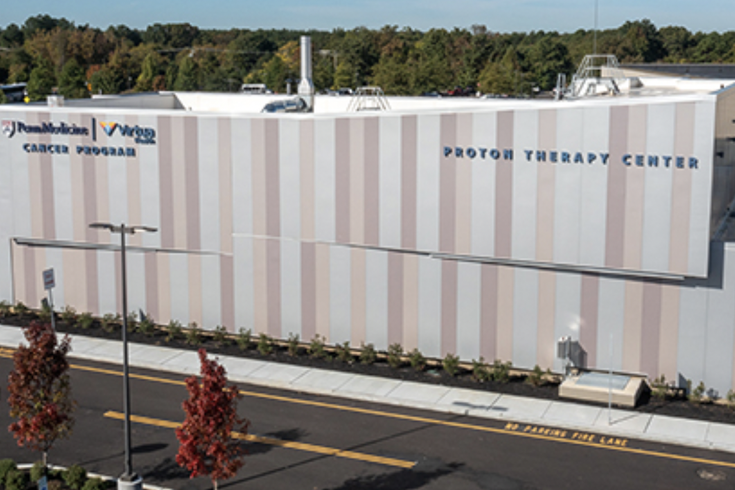
April 05, 2023
 Source/Penn Medicine
Source/Penn Medicine
The new Penn Medicine-Virtua Health Proton Therapy Center is located at 200 Bowman Drive in Voorhees, New Jersey.
South Jersey's first proton therapy center opened its doors to cancer patients this week in Voorhees, offering a convenient regional hub for the promising treatment that's associated with fewer side effects.
The $45 million facility was created through a partnership between Penn Medicine and Virtua Health.
Penn Medicine's Roberts Proton Therapy Center opened in Philadelphia in 2010, and a second Penn Medicine facility offering the treatment opened in Lancaster last summer. There are currently fewer than 50 proton therapy centers in the U.S.
Proton therapy is a relatively new type of radiation treatment that's used to treat cancers as well as some benign tumors. Instead of using X-rays, as in traditional photon beam radiation, proton therapy radiation enters the body at low doses that spare healthy tissue. Traditional radiation beams often go beyond the target site, touching non-cancer cells, whereas proton therapy enables doctors to target more precise areas.
The treatment is often used in patients with recurring cancers, allowing them to endure rounds of radiation with fewer physical hardships. The high-energy proton beams are painless to the patients undergoing treatment.
One 2020 study from the University of Pennsylvania and Washington University School of Medicine in St. Louis found that among patients who simultaneously received radiation and chemotherapy — a common combination for people with locally advanced cancers — those who received proton therapy had significantly fewer serious side effects than those who underwent traditional radiation.
Though comparative research into the side effects of both types of radiation remains limited, the appeal of patients maintaining a more normal lifestyle during treatment has made proton therapy a burgeoning area of cancer care.
In terms of cure rates, proton therapy and traditional radiation have similar clinical outcomes. The greatest barrier to patients receiving proton therapy treatment is that not all health insurances will cover it. Medicaid covers proton therapy, which makes it a viable option for older adult patients.
Since its inception, proton therapy has been used to treat a wide range of cancers including brain cancer, spinal tumors, breast cancer, head and neck cancer, gastrointestinal cancers, gynecological cancers, kidney cancer, lung cancer, lymphoma, mesothelioma, oropharyngeal cancer, pediatric cancer and prostate cancer.
The 8,600-square-foot facility in Voorhees offers a full range of services including evaluation, treatment and access to clinical trials. The program is expected to serve 100 patients in its first year, with the capacity to treat up to 200 patients annually.